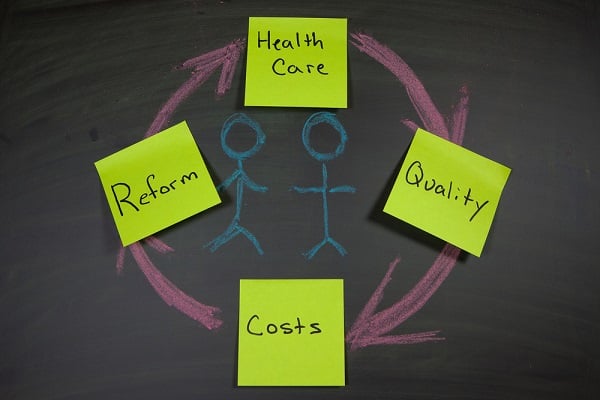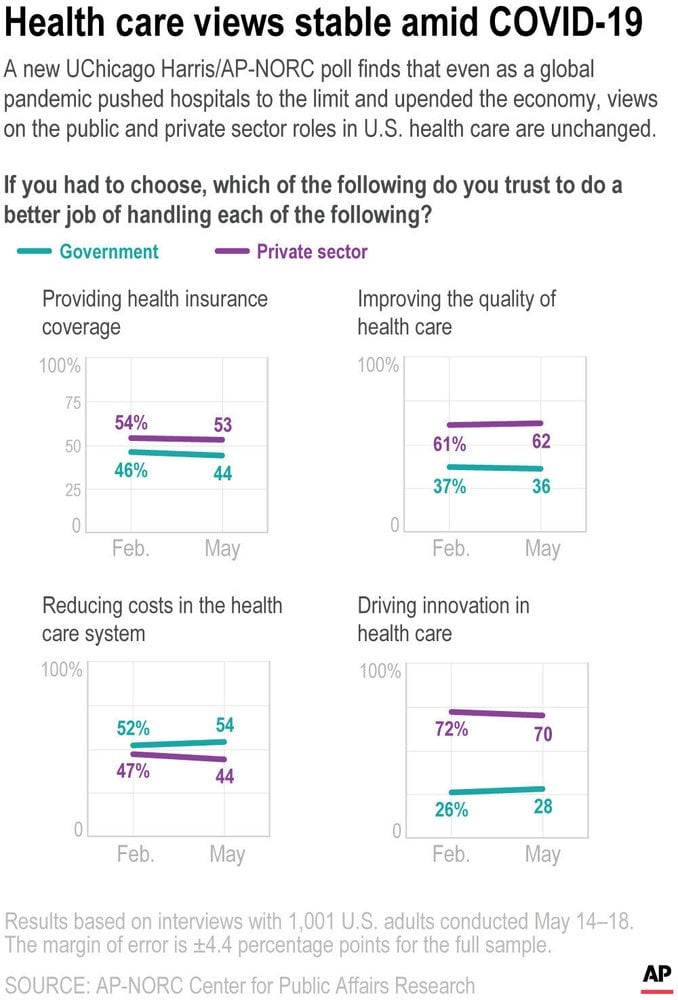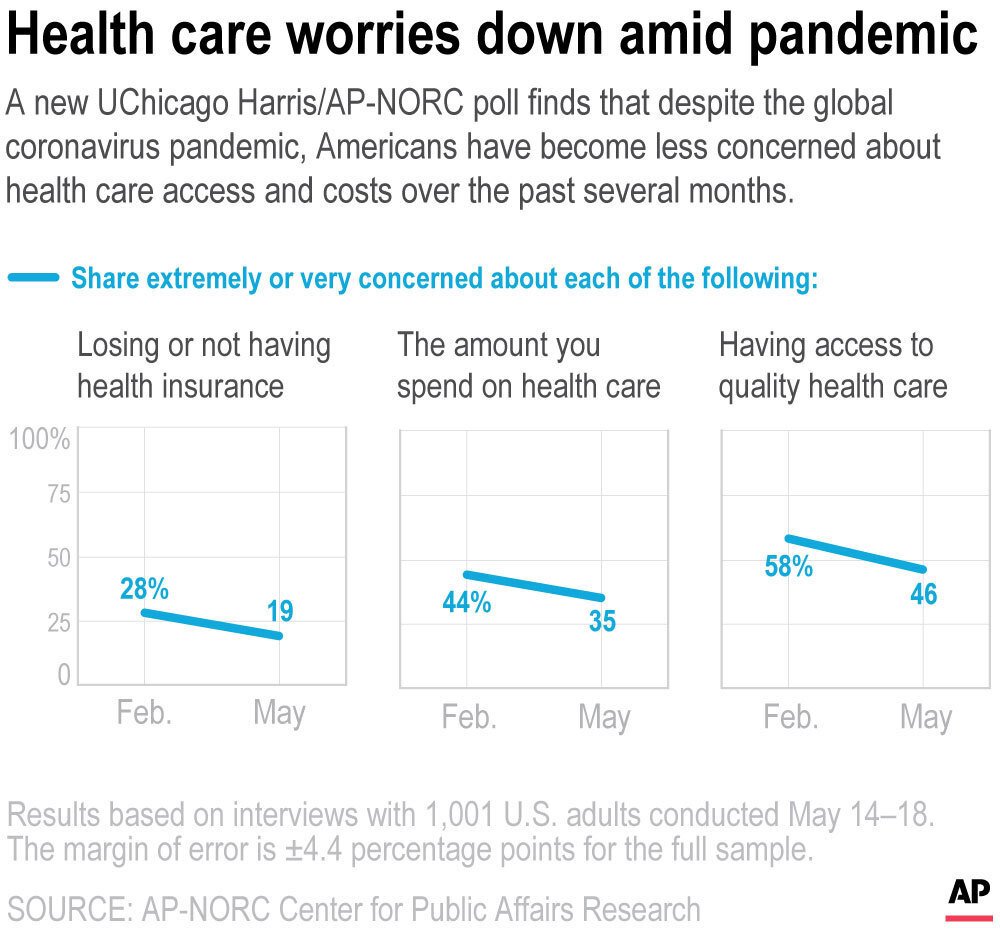 According to the survey, 53% of respondents prefer to see the private sector in charge of health insurance coverage, compared to 44% who think the government could do it better. (Photo: Shutterstock)
According to the survey, 53% of respondents prefer to see the private sector in charge of health insurance coverage, compared to 44% who think the government could do it better. (Photo: Shutterstock)
With so much upheaval in American life over the past few months, it's no surprise that Americans aren't keen on seeing more major changes. According to a new poll from the University of Chicago Harris School of Public Policy and The Associated Press-NORC Center for Public Affairs Research, despite the hit health care providers have taken during the COVID-19 pandemic, Americans still prefer to see the private sector in charge of their care.
Related: What a difference 3 months and a pandemic makes in Americans' view of the economy
"I wonder if the short-term crisis dampens people's appetite for health system reform," said health economist Katherine Baicker, dean of the University of Chicago Harris School of Public Policy. "The idea of upending the health system at this moment … it may be that people think, 'No — let's get a vaccine.' "

According to the survey, 53% of respondents prefer to see the private sector in charge of health insurance coverage, compared to 44% who think the government could do it better. In comparison, those numbers were 54% and 46% in February. Similarly, the percentage of respondents who think the private sector can do a better job of improving health care remains nearly unchanged.
One area where consumers think the government should take the reins: funding for health care improvement. According to the latest poll, 56% of Americans think the U.S. is spending too little on improving national health, compared to 42% who think the government is spending too little in general.

The poll also shows that the pandemic has made many Americans count their blessings and be content with what they have. The percentage of people who are either concerned about access to quality care, the amount they spend on care, or the risk of losing health insurance has dropped for all three categories since February.
"In February, people had all sorts of complaints about their jobs — their daily tasks, their hourly pay," utility worker Nick Zumbusch told AP. "Come May, there wasn't a whole lot of complaining. It was, 'I'm happy to be here, and I'm happy to have a job.'"
Read more:
- Health care reform: Room for one more idea?
- Even amid COVID-19 pandemic, Americans not sold on single-payer health care
- Up to 43 million could lose employer-sponsored health insurance
© 2025 ALM Global, LLC, All Rights Reserved. Request academic re-use from www.copyright.com. All other uses, submit a request to [email protected]. For more information visit Asset & Logo Licensing.








